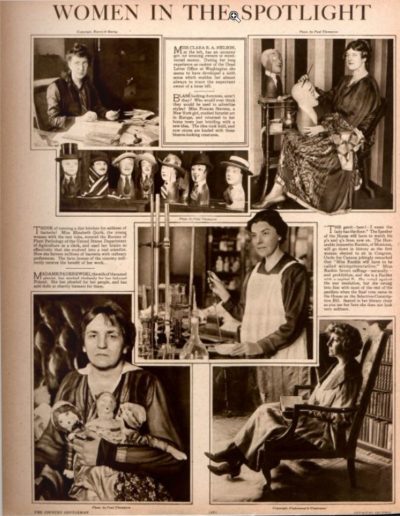Remembering Jeannette Rankin—the First Woman in Congress
One hundred years ago, Jeannette Rankin’s home state of Montana voted to send her to Washington, making her the first female member of Congress.
She had long been an advocate for women’s rights, but she was also gaining a national reputation for being, as this Country Gentleman item notes, “a Pacifist with a capital P.”
Pacifism was consistent with western politics in those days. Farmers and ranchers were strongly opposed to the U.S. getting involved in foreign affairs. Rankin remained faithful to her principles in 1917, when President Wilson asked Congress to declare war on the Central Powers in Europe. She, and 50 other congressmen, voted against entering the war.
While she had remained faithful to her pacifism, the country was changing its mind under the influence of pro-war propaganda. Pacifism became suspect, and there were accusations of disloyalty to anyone who didn’t fully support the war.
Rankin’s now unpopular principles, and a reapportionment that put her in a Democratic district, resulted in her losing a bid for reelection in 1919.
She retired to the country, though she continued to speak out for peace and the prevention of war. She also lobbied for progressive reforms, such as ending child labor and providing relief to working women with children.
In 1940, she ran for Congress again and won. Rankin believed that campaigns should be run from the bottom up. She and her mother, who was past eighty at the time, drove from ranch to ranch. She believed “that the country people are the best informed people in our country.”
She was now one of nine women in the House. She gained new notoriety for resisting President Roosevelt’s efforts to aid Great Britain. The day after the Japanese attack on Pearl Harbor, she was the only member of Congress to vote against the declaration of war. This time, her pacifism drew even stronger criticism and anger from the American public. When President Roosevelt asked for a second declaration of war, this time against Germany and Italy, Rankin abstained to make the vote unanimous. She recognized how unpopular she’d become, and so didn’t run for reelection the following year.
However, she continued to advocate pacifism over the decades, and as late as 1972 was considering running for Congress again. Her position on war had become far more popular as opposition to the Vietnam war drew thousands to the cause.
Several other women were elected to Congress after Rankin. But she was first, and, for many decades, one of the very few women who were elected for their own merits and not simply to fill an office vacated by a husband or father.


Featured image: Wikimedia Commons / public domain